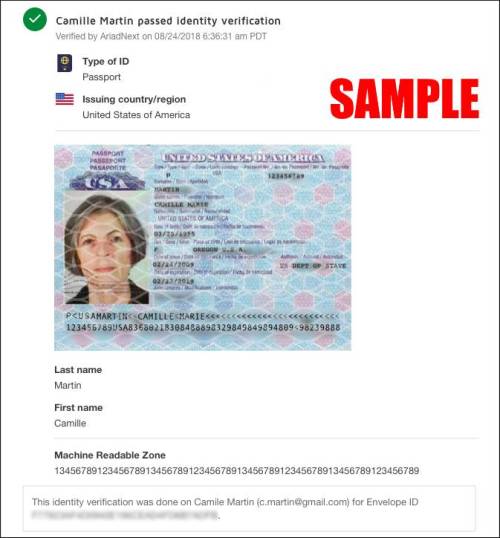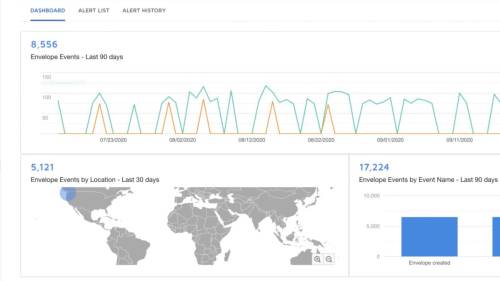
Ensuring trust across your agreements
At Docusign we've invested in a platform that customers can trust—regardless of what trust means to you—so that you can conduct business.

Trust means different things to different people. When you think about agreements, especially digital ones, trust can take on a few more meanings. For some, trust is knowing that all parties in a digital agreement are who they say they are. This is especially important when you're agreeing to something with someone you haven't met in person. For others, trust is knowing that an agreement never leaks and never gets into the wrong hands. And for others, an agreement is part of a process and is connected to multiple other components in a business workflow, and so trust means that the process never fails.
At Docusign, we house your most sensitive transactions: real estate, business agreements, compensation, and an array of some of the most important documents in people's lives. So it's important to us that we appeal to all senses of trust. And we're excited to showcase two Agreement Cloud APIs at the Docusign Developer Conference that center on trust:
Retain Proof of Recipient Identity Verification with ID Evidence API

A fundamental component of any digital transaction is that we know who is on the other side of the agreement. So for us it's important that the right people are interacting with the right transaction in the right way—and ensuring this is one of the most important things that we can do at Docusign.
ID Evidence is a feature of Docusign ID Verification which delivers evidence of the ID verification process in a transaction. The ID Evidence API is the natural extension of ID Evidence. It enables our customers to keep the information they need within their own information system each time an ID verification has been done. This API can be useful for all ID Verification customers who need to prove, in an automated way, that they did what they were supposed to do. Learn more about ID Evidence API in the session on October 26th at 10:00 am PT titled "Retain Proof of Recipient Identity Verification with ID Evidence API."
Docusign Monitor API for SIEM & BI Tools

Our belief is that you can't be trusted if you're not transparent. We've built extensive systems to monitor the security and reliability of our platforms. In the example of monitoring our systems, we have large-scale telemetry systems that process tens of billions of transactions per day. We monitor over a million pieces of telemetry that tell us if the system is healthy or not, and if not, giving us insight into the state of those transactions on a customer-by-customer and system-by-system basis and feeding into remediation processes that can repair problems before customers ever notice them.
With Monitor API, we leverage some of this telemetry so that we can protect your agreements with around-the-clock activity tracking. Monitor API makes it easy to integrate data from Docusign Monitor into your Security and Intelligence Management (SIEM) or Business Intelligence (BI) software of choice. All it takes is an easy and repeatable three-step process to
Retrieve an access token for calling the API
Request Docusign Monitor events
Persist the cursor
Learn more about this process in the session on October 27th at 10:00 am PT titled “Docusign Monitor API for SIEM & BI Tools.”
We could build the most valuable features, but it wouldn't matter if our customers were unable to access our systems. As such, we strive to provide our services at higher than four-nines uptime for eSignature without the need for maintenance windows or other scheduled downtime. Here at Docusign, we've invested in a platform that customers can trust—regardless of what trust means to you—so that you can conduct business. We look forward to seeing you at the Developer Conference to learn more about ID Evidence API and Monitor API.
Additional resources

Vishal Naik is the Director of Product Marketing for Docusign’s Platform and APIs. His focus is on driving awareness, interest and usage of Docusign’s most technical products across all user personas.
Related posts
Discover what's new with Docusign IAM or start with eSignature for free





